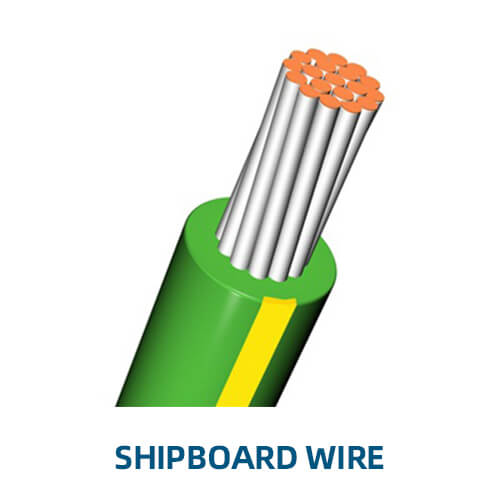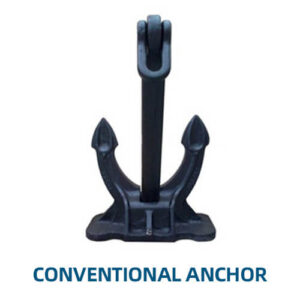Key Features of Shipboard Wire:
- Construction and Materials:
- High-Quality Conductors: Typically made with stranded copper, which offers superior conductivity and flexibility, ensuring stable electrical connections and easy routing during installation.
- Durable Insulation: Insulated with materials like cross-linked polyethylene (XLPE) or polyvinyl chloride (PVC), providing excellent resistance to heat, moisture, chemicals, and abrasion, making the wire suitable for the harsh marine environment.
- Protective Sheathing: Some shipboard wires feature an additional outer sheath or jacket for extra protection against environmental stressors such as UV radiation, saltwater, and physical wear.
- Electrical Performance:
- Consistent Electrical Conductivity: Engineered to maintain consistent electrical conductivity, ensuring reliable power and signal transmission across various shipboard systems, from lighting to communication and control systems.
- Low Voltage Drop: Designed to minimize voltage drop over distances, ensuring efficient power delivery and reducing energy loss, which is crucial for maintaining the performance of critical systems.
- Temperature Resistance: Capable of operating in a wide range of temperatures, ensuring reliable performance even in extreme marine conditions.
- Safety and Compliance:
- Flame Retardant: Constructed to be flame-retardant, reducing the risk of fire spreading along the wire, which is critical for the safety of the vessel and its occupants.
- Low Smoke and Halogen-Free: Many shipboard wires are low smoke and halogen-free (LSHF), meaning they emit minimal smoke and toxic fumes in the event of a fire, improving safety and visibility during emergencies.
- Compliance with Marine Standards: Certified to meet international marine standards, such as those from ABS, DNV-GL, and IEC, ensuring they are suitable for use in marine environments and compliant with safety regulations.
- Durability and Longevity:
- Resistant to Marine Conditions: Specifically designed to withstand the unique challenges of the marine environment, including exposure to saltwater, oil, chemicals, and mechanical stress, ensuring a long service life with minimal maintenance.
- Robust Mechanical Protection: Some shipboard wires are reinforced with additional layers of protection, such as braided armor or extra sheathing, to withstand physical stress and enhance durability in high-risk areas.
- Flexibility and Installation:
- Flexible Design: Offers flexibility for easy installation in tight spaces and around sharp bends, making it ideal for the complex wiring needs on vessels where space is often limited.
- Ease of Handling: Designed for ease of stripping, cutting, and terminating, simplifying the installation process and reducing the time required for wire management in shipboard environments.
- Versatility and Applications:
- Wide Range of Applications: Suitable for various applications on ships, including general wiring, lighting circuits, control systems, communication lines, and power distribution.
- Multiple Sizes and Configurations: Available in a range of sizes and configurations, from single-core to multi-core designs, allowing for tailored solutions to specific wiring requirements onboard.
Shipboard Wire is a critical component in marine electrical systems, providing the necessary connections for powering and controlling various onboard equipment and systems. With its robust construction, safety features, and compliance with marine standards, shipboard wire ensures reliable performance in the demanding conditions of the marine environment. Whether used for power distribution, communication, or control systems, these wires play a vital role in maintaining the safety and functionality of maritime operations.






